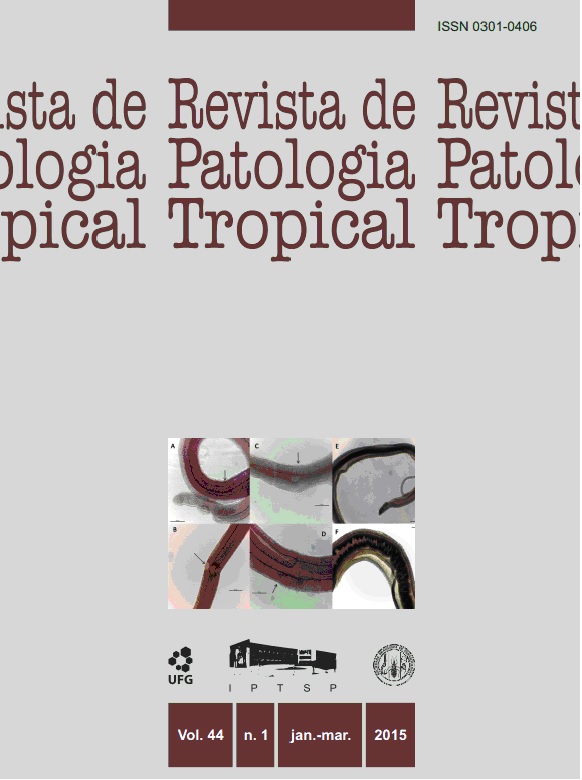INVESTIGATION OF BENZNIDAZOLE TREATMENT ON IMMUNE RESPONSE OF CHRONIC OF CHAGAS DISEASE
DOI:
https://doi.org/10.5216/rpt.v44i1.34809Abstract
Evidence suggests that benznidazole treatment directly interferes withthe host immune response in the chronic phase of Chagas disease. However,a longitudinal study to simultaneously evaluate immune parameters related toactivation, cytotoxicity, cell regulation and inflammation of these chronic patientssubmitted to etiological treatment has never been performed. Therefore, the presentstudy aimed to evaluate immune response in individuals with chronic Chagasdisease before and after benznidazole treatment. Twenty-one adults classifiedas in the chronic phase of Chagas disease (indeterminate form-IND=13/cardiacform-CARD=8) were selected. Blood samples were collected before etiologicaltreatment (T0/n=21), after 2-3 months (T1/n=21) and after 5-6 months (T2/n=16),which were analyzed by flow cytometry. Increase in CD5+CD19+ B1 lymphocytes,as well as greater activation of cytotoxic T CD8+ cells (CD28+), indicated thatbenznidazole exacerbates cellular mechanisms related to Trypanosoma cruzielimination. On the other hand, there was a reduction in IFN-g production by T and Blymphocytes in all individuals. These phenomena associated with a low percentageof CD4+CD25+/highFoxP3+ T lymphocytes, suggest a loss of the mechanismsagainst the parasite and to control inflammatory response. It was emphasized thatthe rise of a modulated Th1 cytokine pattern (inflammatory: IFN-g / regulatory:IL-4, IL-6, IL-10) delayed (T2) in the IND+CARD group may indicate that after aninitial immune imbalance, host response would become immunomodulatory. Thus,benznidazole acts by unbalancing different mechanisms related to immune responsein chronic Chagas disease. A long follow-up investigation will be necessary toconclude if these phenomena are definitive or are due to high levels of drug andantigen in the host organism.Downloads
Downloads
Published
How to Cite
Issue
Section
License
The manuscript submission must be accompanied by a letter signed by all authors stating the full name and email address, confirming that the material has not been published or is under consideration for publication elsewhere, and agreeing to transfer copyright in all media and formats for Journal of Tropical Pathology. The authors will not be paid for published articles. They are solely responsible for the content of those articles, even if the Editor holds the right to adjust them to the norms of the journal.
The reviewers will not be paid for the peer review process.

